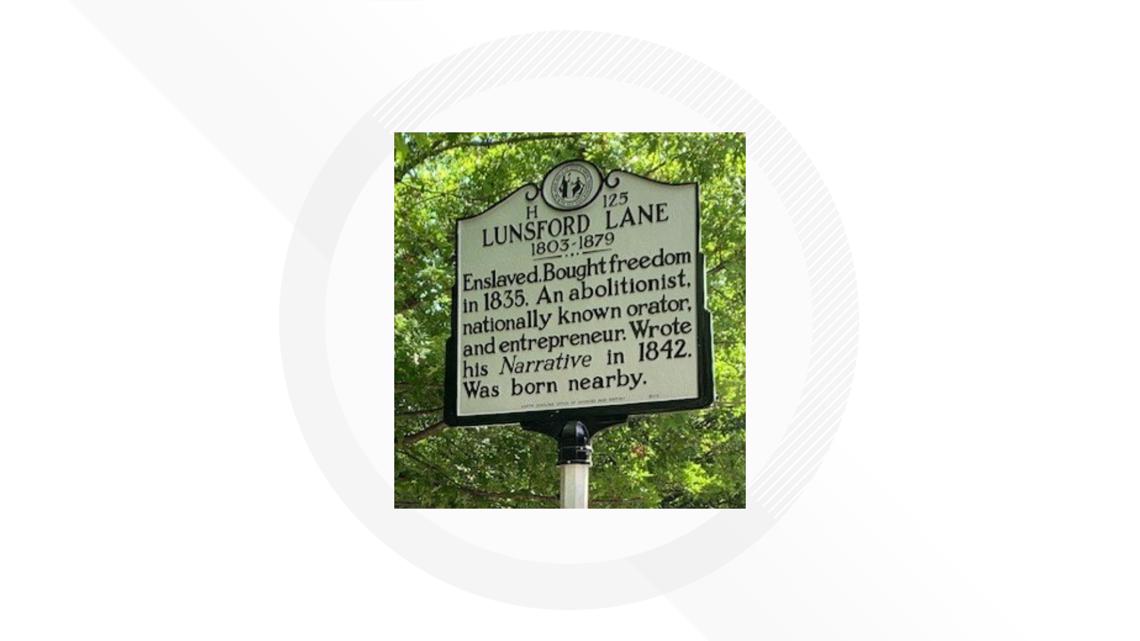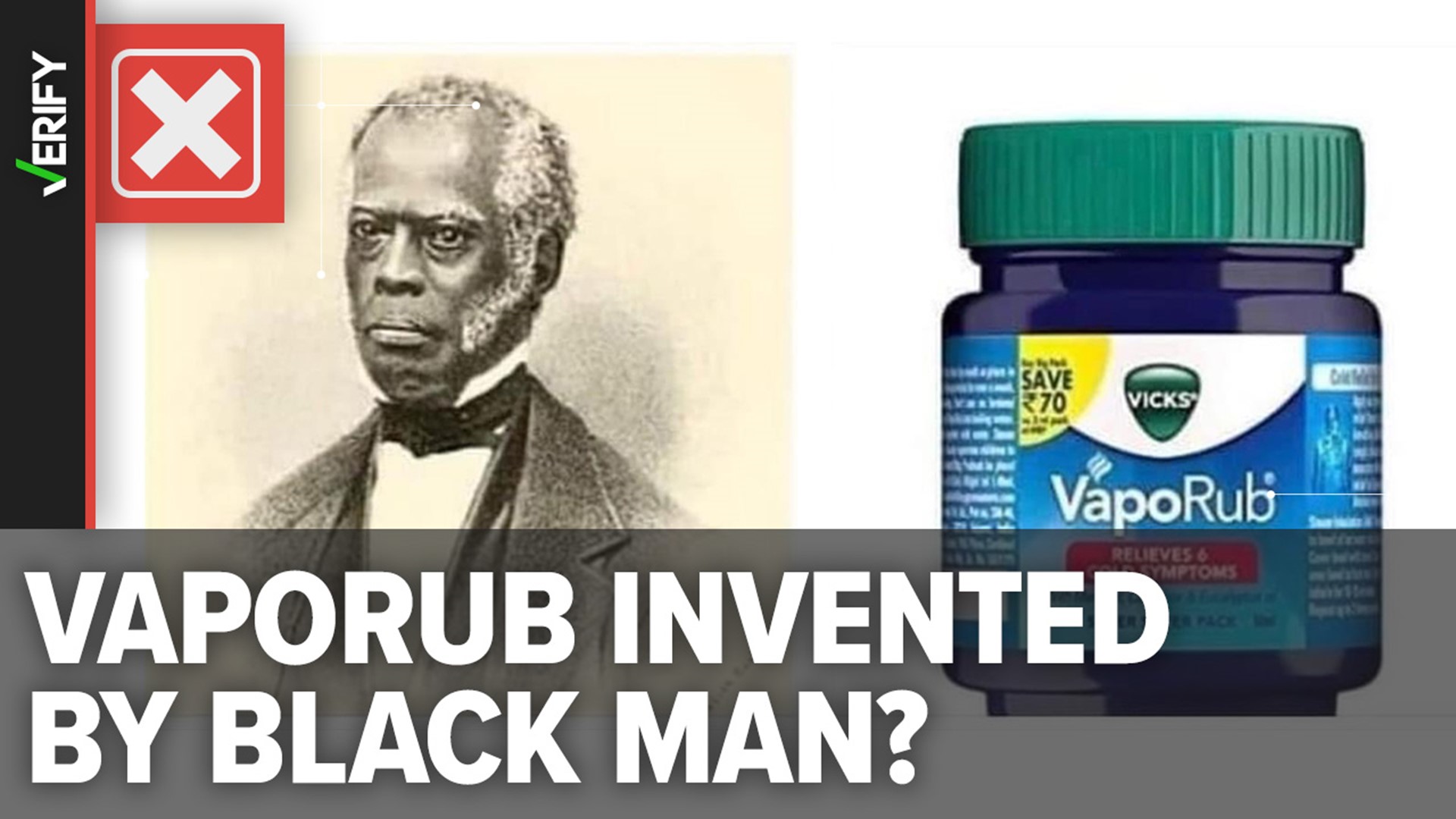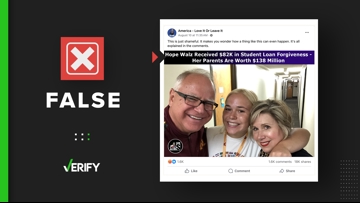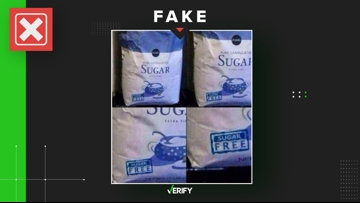Vicks VapoRub is a topical ointment that is commonly used to relieve cold symptoms.
A meme that was first posted during Black History Month in 2022, and shared widely on social media throughout the year, claimed Vicks VapoRub was invented in 1880 by a Black man from North Carolina named Lunsford Richardson. Several people who commented on the social posts seemed surprised to discover that a Black man may have created the popular medicine.
Google Trends data from 2022 also shows that many people online wondered if the information in the meme was true.
THE QUESTION
Did a Black man named Lunsford Richardson invent Vicks VapoRub?
THE SOURCES
THE ANSWER
No, a Black man named Lunsford Richardson didn’t invent Vicks VapoRub. The inventor was a white man. The man pictured in the viral meme is actually named Lunsford Lane, a successful Black businessman and abolitionist.
WHAT WE FOUND

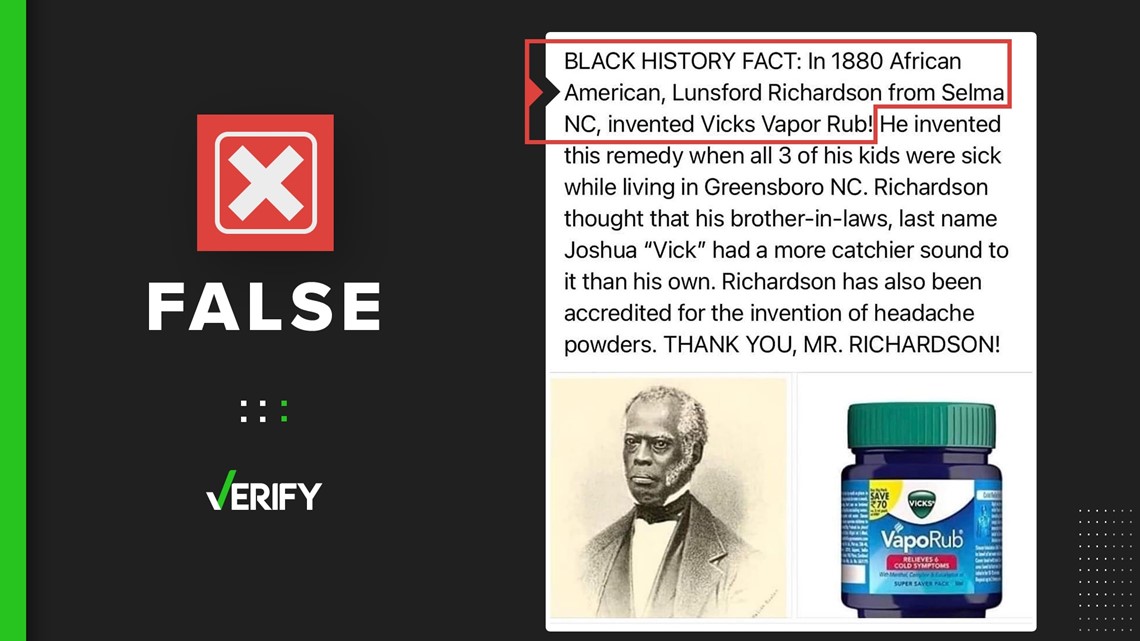
Vicks VapoRub was not invented by a Black man named Lunsford Richardson in 1880.
The real Lunsford Richardson was a white pharmacist and entrepreneur who was born in Johnston County, North Carolina, in 1854. Around 1890, Richardson moved to Greensboro, where he bought W.C. Porter’s drug store with his partner, John Fariss.

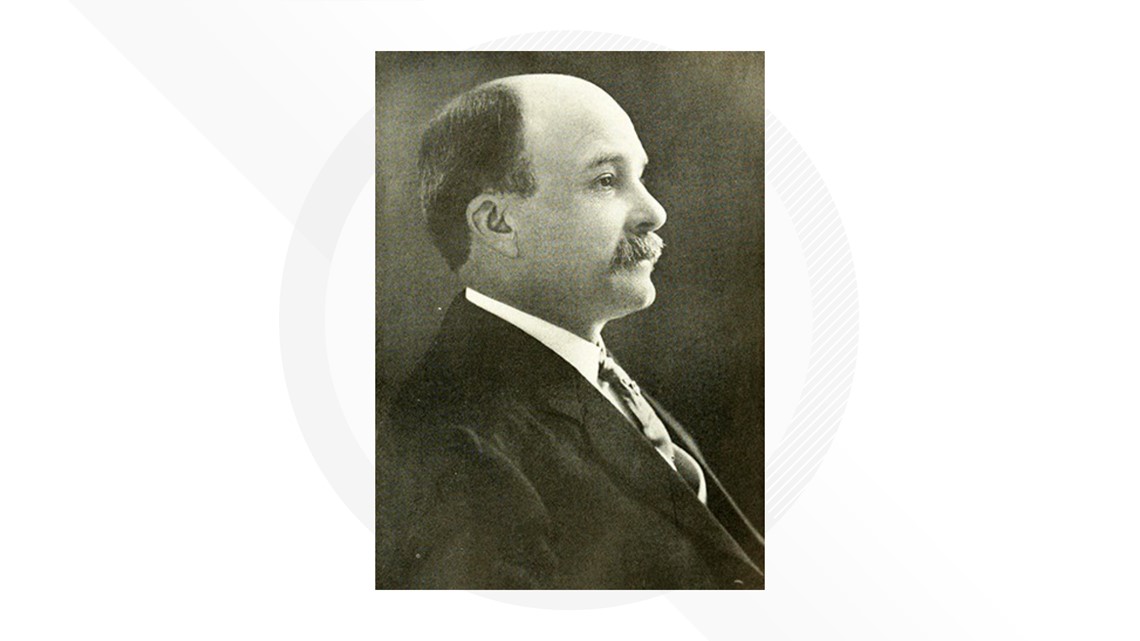
While running the pharmacy, Richardson began to develop new cold remedies for the Vicks Family Remedies Company, which was owned by his brother-in-law, Joshua Vick. Richardson invented Vicks Croup & Pneumonia Salve in 1894, “out of love and concern for his sick son,” the Vicks company says on its website. That salve is now known as Vicks VapoRub.
The Black man pictured in the viral meme is actually Lunsford Lane. According to the National Park Service and the North Carolina History Project, Lane was a successful businessman, author and abolitionist who was born into slavery in Raleigh, North Carolina, in 1803.

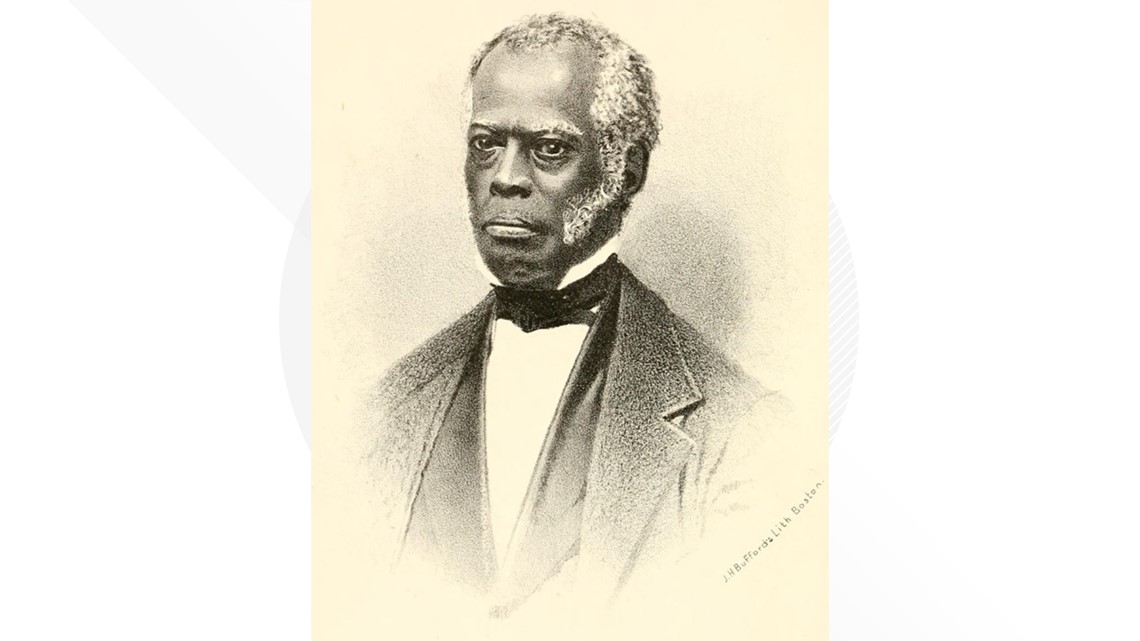
As a child, Lane worked in the home of his enslaver, Sherwood Haywood, in Raleigh. During this time, he began to pursue a variety of entrepreneurial ventures, such as selling peaches, marbles and chopped wood, all in an effort to one day save up enough money to purchase his freedom.
Eventually, with the help of his father, Lane started a successful tobacco business where he sold a unique pipe and popular tobacco blend he created to members of the North Carolina state legislature and other wealthy white businessmen in Raleigh.
In 1835, Lane bought his freedom with the money he saved up. However, due to growing hostility towards free Blacks in North Carolina, Lane was forced to flee to the North in 1840, leaving behind his wife, Martha, and their six children, according to the National Park Service. Lane briefly returned to the state to purchase his family’s freedom before they settled in Massachusetts.
In 1842, Lane wrote and published an account of his life, titled “The Narrative of Lunsford Lane,” in Boston. The book was well-received and sold many copies in the United States and England.
The state of North Carolina approved a historical marker in honor of Lane’s legacy in 2018, and it was erected in Raleigh within the next year.

